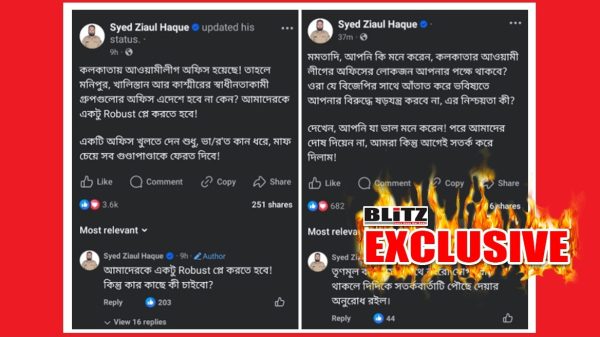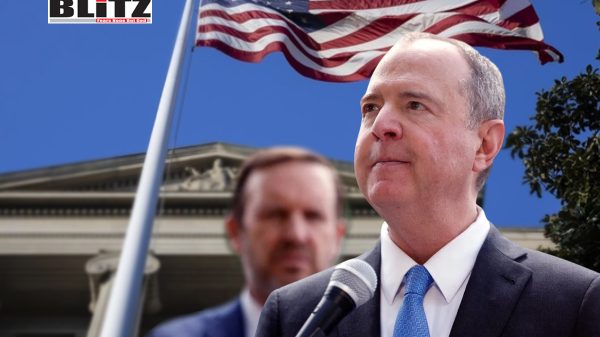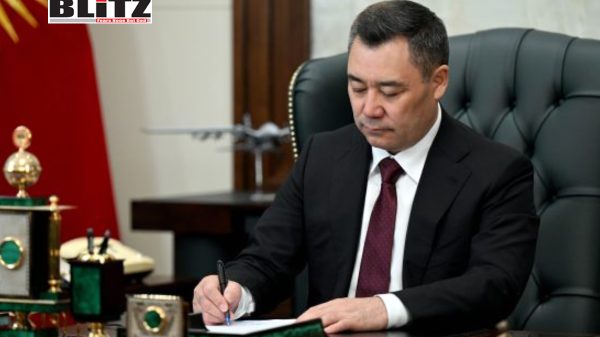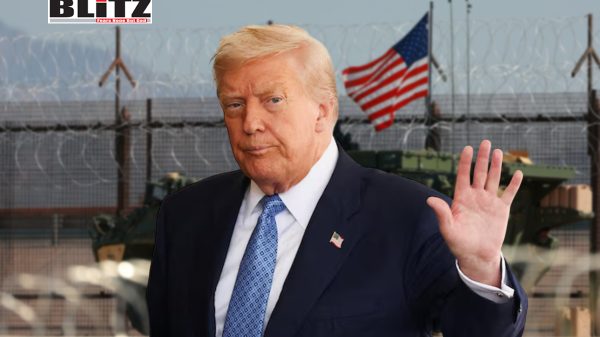From bluff to bullets: The Islamist plot to silence critics in Bangladesh
- Update Time : Monday, August 11, 2025

The shadow of Islamist militancy is once again looming large over Bangladesh, as the Yunus regime, backed by questionable foreign alliances, tightens its grip on power. While Nobel laureate Muhammad Yunus publicly talks about holding general elections in February next year, his actions – and the brazen activities of Islamist, jihadist, and terrorist elements operating with impunity -tell a different story. The threats have now reached my own doorstep, in a chilling reminder that those who refuse to submit to this regime’s wrongdoings face intimidation, silencing, and possibly lethal consequences.
While Muhammad Yunus has recently declared that Bangladesh’s next general election will be held in February next year, local Islamists, jihadists, and terrorists have suddenly intensified their activities, targeting journalists and political opponents. This is an extremely alarming sign of the dangerous situation unfolding in the country – where powerful elements oppose the transfer of power to an elected government, preferring instead that Yunus remain in office indefinitely, potentially turning Bangladesh into the next epicenter of the US Deep State’s proxy war.
Even Yunus’s announcement of the election carries the stench of political theatre. Many view it as a bluff. For example, instead of preparing for a democratic transition, Yunus has begun transforming the official residence of the Prime Minister into a so-called “Museum of Tyranny”, without making provisions for alternative accommodations for the next head of government – an act that clearly signals he has no intention of restoring democracy in the foreseeable future.
A particularly startling development emerged on August 7, 2025, when Humayun Kabir, the Foreign Affairs Adviser to Bangladesh Nationalist Party (BNP) acting chairman Tarique Rahman, revealed that Rahman had held a one-on-one meeting with US Chargé d’Affaires Ambassador Tracey Ann Jacobson in London in July. According to Kabir, the discussions covered “fundamental issues – what kind of country the BNP wants to build if it wins the next election, the party’s stance on the electoral framework, and its vision for its role internationally”.
Kabir further stated that if the BNP wins and forms the next government, Tarique Rahman will become Prime Minister. He also claimed the election schedule will be announced at the end of this year, with Rahman returning to Bangladesh between November and December.
It is worth noting that during its 2001–2006 tenure, the BNP was embroiled in multiple conspiracies against India, including its notorious attempt to smuggle ten truckloads of arms and explosives to the United Liberation Front of Assam (ULFA).
From Kabir’s remarks, it is clear that the Trump administration has aligned itself with the BNP and given it a green light to form the next government through a one-sided election from which major political forces, including the Awami League, will be barred. Under this arrangement, the BNP would form the government while Jamaat-e-Islami takes the opposition benches.
Just days after meeting Tarique Rahman, Ambassador Jacobson met with Muhammad Yunus to raise concerns over the sudden rise in militancy and terrorism. It is possible that she also pressed Yunus to hold elections and transfer power to an elected government. Washington’s “exit formula” for Yunus remains unclear, especially as BNP may not fully embrace his agenda – although there are rumors that, following the elections, Yunus might be elevated to the presidency.
While publicly promising elections, the Yunus regime’s Islamist and jihadist allies have become increasingly desperate in silencing critical and secular voices – possibly enjoying state patronage in the process.
I have now become the latest target of such extremist intimidation.
At 10:18 pm Bangladesh Standard Time, I received a call from an unknown number on one of my mobile phones. Two minutes later, two simultaneous calls from the same number came through on another phone – one whose number is not public knowledge. This suggested that the caller was no ordinary individual; they likely obtained my details through official channels within the Yunus regime, or possibly from the intelligence services.
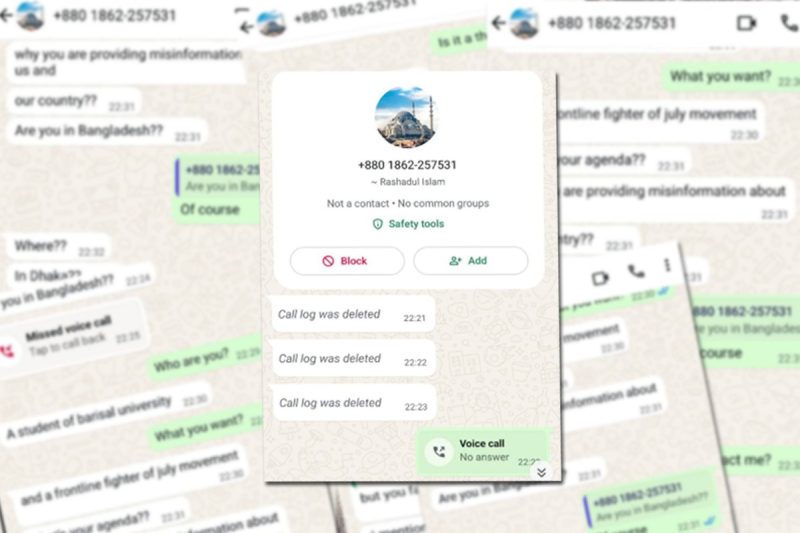
Screengrab of threat messages
Minutes later, the same caller attempted to reach me via WhatsApp. The profile name was “Rashedul Islam” using the number +8801862-257531. When I did not answer, the caller sent a text:
“Hi sir, are you in Bangladesh?”
When I asked who he was, he replied:
“A student of Barisal University. A frontline fighter of the July movement [last year’s Jihadist Coup]. What’s your agenda?? Why are you providing misinformation about us and our country?? Are you in Bangladesh??”
Upon confirming my presence in Bangladesh, he asked:
“Where?? In Dhaka??”
When I pressed him on who had instructed him to contact me, he replied:
“None. It’s our responsibility as patriots. You are a respected person. But what you are doing is totally absurd. You are becoming a propaganda machine against July fighters. Sir, what’s your agenda? If you keep doing your heinous activity, we will take hard action”.
Then came the most chilling moment – he threatened that if I did not remain silent, they would “use a 7.62 mm [sniper rifle]” against me. Although he quickly deleted this message, it left no doubt in my mind that the sender was linked to Hizb ut-Tahrir, another jihadist group, or even the Pakistani Inter-Services Intelligence (ISI).
This was not my first encounter with such hostility. On August 9, after I posted on Facebook that “those who don’t believe in ’71 [Bangladesh’s Liberation War] may go to Pakistan”, a coordinated swarm of Islamists and anti-liberation elements flooded my page with abusive comments – clear evidence that cyber jihadists have grown significantly over the past year.
Hours before these threats, the Bangladesh Army recovered large caches of weapons, machetes, and samurai swords during raids in Dhaka’s Imanbagh Mosque and Mohammadpur area. This confirms that militant groups are stockpiling arms, likely with the intention of launching attacks against Bangladesh’s 170 million citizens, and possibly even orchestrating cross-border strikes in India.
Since last year’s Jihadist Coup, Pakistani ISI has been smuggling weapons, explosives, and narcotics into Bangladesh, often through members of the “Stranded Pakistani” (Bihari) community – over 700,000 strong – whose social and financial vulnerabilities make them ideal recruits for subversive operations. These communities, often referred to as “mini Karachi”, are hubs of Pakistani culture and religious extremism, harboring deep animosity towards both India and Bengali nationalism.
If the Trump administration’s plan to reinstate BNP to power – while excluding Awami League and other key political players – comes to fruition, the result will be disastrous not only for Bangladesh but for the entire South Asian region. With his duplicity, double standards, and overtures towards terrorist states like Pakistan, Donald Trump appears to be advancing an even more dangerous agenda in Bangladesh than his predecessor Joe Biden, paving the way to turn the country into a new theater for proxy wars.
The threats I have received are not isolated incidents – they are a microcosm of a much larger, more sinister reality. The Yunus regime, backed by opportunistic foreign powers and emboldened Islamist networks, is dismantling Bangladesh’s democratic framework piece by piece. Unless the international community – especially India and other regional stakeholders – takes immediate and decisive action, Bangladesh could soon fall into the hands of extremists, becoming both a breeding ground and a launchpad for terrorism across South Asia. This is no longer a matter of political rivalry; it is a fight for the survival of a sovereign, secular Bangladesh.






